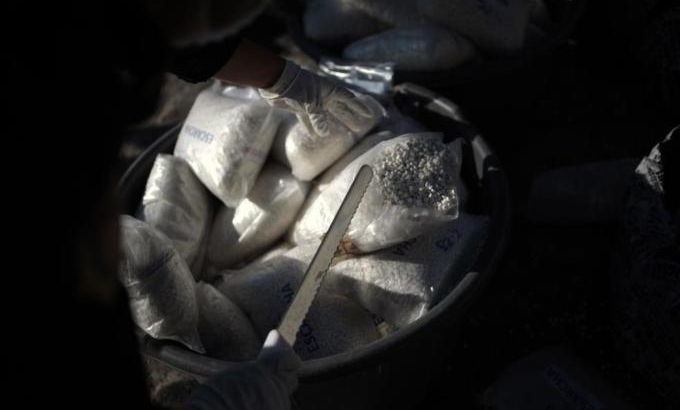
Getting high for cheap in Europe
We ask if the economic crisis is causing a rise in the consumption of new drugs in countries like Greece.
They are cheap, dangerous, and can have harmful side-effects. And they are the new type of drugs being used by a growing number of people across Europe, according to a new European Drug Report.
Amphetamines and ecstasy are still the most common drugs on the market. As far as ecstasy is concerned, its use is on the rise, with stronger pills attracting more buyers. But the use of psychoactive substances, which are intended to mimic the effects of illegal drugs, is a worrying new trend.
Keep reading
list of 4 itemsWoman, seeking loan, wheels corpse into Brazilian bank
UK set to ban tobacco sales for a ‘smoke-free’ generation. Will it work?
Poland lawmakers take steps towards liberalising abortion laws
Drug users pay all their money for their dose ... they don’t keep money for food or to cover their other needs …. What the government tries to do is link them with services where they can try to go have food, shower, clean clothes and other services for their health issues.
Last year, 73 new types of such ‘legal highs’ were discovered. One of those, shisha, is known as the ‘cocaine of the poor’, and its use is on the rise in Greece. There are fears that the country’s crippling economic crisis could be making the problem worse.
These synthetic drugs are often chemical compounds that imitate the effects of drugs like cannabis. Many of them are made in illegal labs in China because they are not regulated and experts worry about unknown dangerous ingredients they may contain.
This lack of regulation means legal highs are often widely available online. And even though some countries, like the United Kingdom, have tried to ban specific kinds of legal highs, the development of new drugs is still outpacing the law.
Research published this month shows that the financial crisis has seriously affected people’s health in general. In fact, researchers in Britain and the US recorded more than 10,000 suicides during the recession and diagnosed around a million new cases of depression, which means a 10 percent rise.
“When you have an economic downturn, the people who use drugs for recreational purposes have a tendency to decrease their use so it can have a protective effect. However, where it is the worst … it is with the marginalised people [who] become even more marginalised because they have less social benefits, they have less access to jobs and then they take more risks when they take drugs and classically they move to the injection of the most dangerous drugs,” said Frank Zobel, the editor of the European Drug Report.
In the US, five million Americans have lost access to healthcare. And in Britain, 10,000 families have lost their homes. Additionally, HIV rates in Greece have risen by more than 200 percent since 2011, because of cuts in funding to prevention programmes. And research suggests that rising unemployment could be a factor in increased drug use.
So, is the European economic crisis the main reason behind the rise in the consumption of these new drugs? And will the new health services being made available by governments help to reduce this trend?
To discuss this, Inside Story, with presenter Hazem Sika, is joined by guests: Eleni Marini, a clinical psychologist and head of the street work team at KETHEA, Greece’s largest rehabilitation and social reintegration network; Frank Zobal, an editor of the European Drug Report; and Dimitri Sotiropoulos, a political science professor and researcher on the social effects of austerity.
|
“The Greek state has not sustained stable policy to fight the distribution of drugs by drug dealers. There is a problem not only by drug use … but also with the incapacity of police forces to balance the spread of drugs in a country which you know is located in the Eastern Mediterranean, which serves as a transit point for the distribution of drugs in Europe.” – Dimitri Sotiropoulos, a political science professor and researcher on the social effects of austerity |